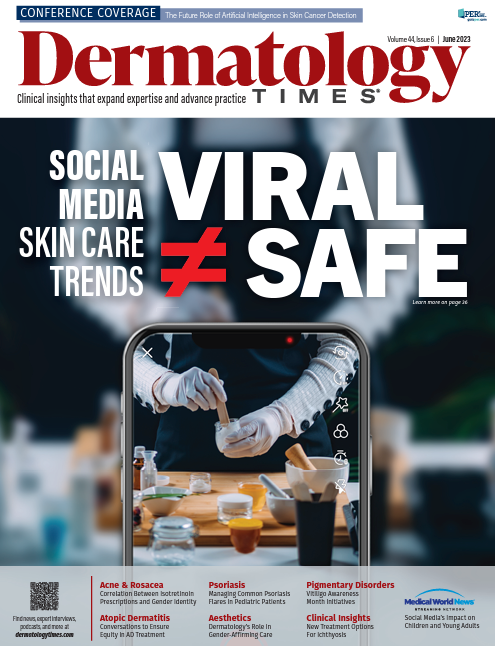- Case-Based Roundtable
- General Dermatology
- Eczema
- Chronic Hand Eczema
- Alopecia
- Aesthetics
- Vitiligo
- COVID-19
- Actinic Keratosis
- Precision Medicine and Biologics
- Rare Disease
- Wound Care
- Rosacea
- Psoriasis
- Psoriatic Arthritis
- Atopic Dermatitis
- Melasma
- NP and PA
- Skin Cancer
- Hidradenitis Suppurativa
- Drug Watch
- Pigmentary Disorders
- Acne
- Pediatric Dermatology
- Practice Management
- Prurigo Nodularis
- Buy-and-Bill
Publication
Article
Dermatology Times
Crucial Conversations Are Needed to Address Racism in Medicine
Author(s):
Candrice Heath, MD, FAAP, FAAD, reviewed the important conversations dermatologists need to have to understand how racism affects SOC patients with atopic dermatitis at RAD 2023.
Flamingo Images/AdobeStock

“In order to really call ourselves experts in skin color, the difference is that we don't just take care of brown and black bodies, a lot of people do. You have to be thinking about health equity and the things that I'm talking about [today] when you're in the exam room with your patient,” said Candrice Heath, MD, FAAP, FAAD, assistant professor of dermatology and director of pediatric dermatology at Temple University. Heath spoke at the 2023 Revolutionizing Atopic Dermatitis conference in Washington, DC, to discuss the crucial conversations dermatologists need to consider to help combat racism in medicine. Heath specifically focused her talk on how racism plays a large role in patients with skin of color not receiving the proper atopic dermatitis (AD) care that they need.
As dermatologists are treating patients with skin of color, it’s important to consider what else could be going on in the patient’s life, what are they telling or not telling you in the exam room, and what economic factors could currently be contributing to their limited access to AD care. Heath discussed a few high-level points on disparity trends among patients with skin of color, including:
- Increased AD hospitalizations are associated with being non-white
- AD more commonly persists into mid-childhood in Black and Hispanic children
- Increased AD treatment resistance is more common in patients with skin of color
- Children living in urban areas are more likely to have persistent AD and asthma
Heath then discussed race as a social construct, and how its detrimental side effects last for generations and can affect access to health care. The social construct of race leaves patients with skin of color vulnerable to racism, and racism directly affects health care access, socioeconomic status, and environment, all of which then contribute to the incidence, prevalence, and severity of atopic dermatitis among patients with skin of color.
Race also negatively affects educational attainment and health literacy, according to Heath. Regarding health literacy, Heath discussed a study from Ohio State University that studied the number of words children hear before the age of 5 when being read to and how it impacts their lives.
Children who are never read to before the age of 5 hear about 4600 words. Heath noted that 5 years old is crucial because that is when children start kindergarten. Children who are read 1-2 books per week hear about 63,000 words. Children who are read to 2-5 times a week hear 169,000 words. Children who are read to daily hear 296,000 words before their fifth birthday. Children who are read 5 books a day hear over 1.4 million words before they start kindergarten.
Heath emphasized that parents or caregivers working long shifts may not be able to afford to enroll their child in daycare with a literacy focus. Heath noted that it may not seem like she is talking about atopic dermatitis, but it all relates. Reduced health literacy directly affects health equity, especially in patients with skin of color.
“I would encourage you to think beyond health care access, and think about health care quality [instead], said Heath. Health care access does not always equal quality health care.
Heath concluded her session by reminding attendees that children cannot choose their parents, and without being able to advocate for themselves, children with skin of color are more at risk for persistent AD and inaccessible/poor-quality healthcare. According to Heath, when it’s time to have tough conversations about pediatric health, dermatologists need to make decisions with children in mind and those that are more likely to suffer from lack of AD care.
Reference
- Heath C. Addressing racism in medicine. Presented at the 2023 Revolutionizing Atopic Dermatitis Conference; April 29-May 1, 2023; Washington, DC.







